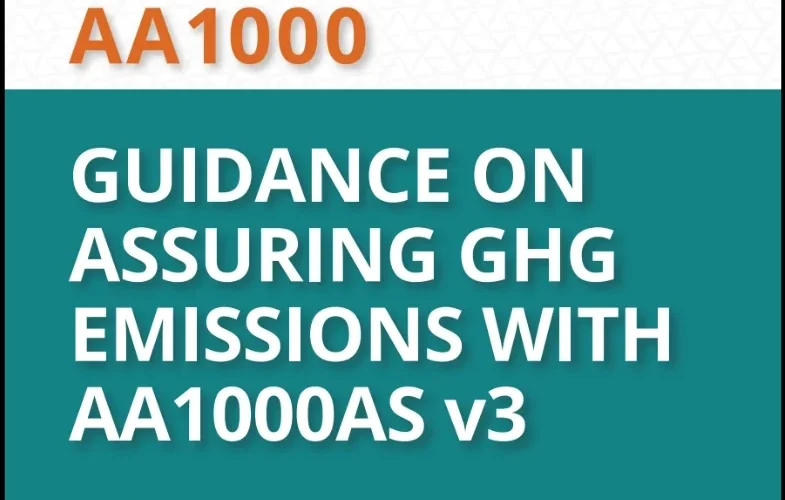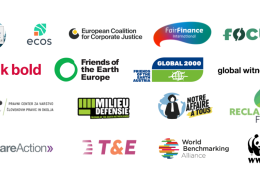AccountAbility has released a new guide to support organisations in reviewing and verifying their greenhouse gas (GHG) emissions, enhancing transparency and trust in the market. The guide, titled “Guidance on Assuring GHG Emissions with AA1000AS v3,” complements the AA1000 Assurance Standard v3 and aims to help professionals evaluate GHG data and processes. It also strengthens how organisations manage, collect, and report this information in response to growing regulatory and stakeholder demand for detailed emissions disclosures.
AccountAbility is a global consulting and standards firm that works with businesses, investors, governments, and multilateral organisations to drive sustainability and ESG advancements by improving organisational practices, performance, and impact.
The guide comes amid growing demand for clearer GHG emission disclosures, as regulators and stakeholders increasingly seek more detailed information on companies’ operations and their impact on communities and the environment.
AccountAbility CEO, Sunil (Sunny) A. Misser welcomed the change in mindset related to sustainability globally, with businesses recognising the value of sustainability investments, knowledge, and impact.
He said, “Stakeholders are using GHG information to forecast and test an organisation’s health. As such, the demand for more reliable GHG emissions data, and the transparency of processes used to collect and calculate these emissions, is growing. As we saw with financial information before it, I have no doubt that this information will be used increasingly to predict a company’s future performance.”
Chair of AccountAbility’s Standards Board Amy Springsteel said, “The release of this guidance document will give reporting companies and assurance providers more certainty over the data required to verify GHG emissions. Non-financial sustainability assurance professionals can provide an in-depth assessment of whether an organisation’s GHG data meets the expected benchmarks of reliability and quality, accuracy and comparability while also ensuring the information disclosed is most relevant to the reporting organisation.”
Springsteel added, “As an example, this guidance document together with the AA1000AS v3 reviews the presence of a target, goal or milestone as well as the mechanisms used to measure its effectiveness and ultimately predict its performance, moving sustainability reporting from backwards looking to forward looking.”
GHG data, like financial information, is now subject to rigorous scrutiny, with many organisations required to have their data independently verified. This verification increases confidence in the methods used to calculate emissions and ensures data is comparable and transparent for carbon accounting and reporting.
AccountAbility Standards Board member Dr. Glenn Frommer said, “The AA1000AS v3 helps assurance providers attest the subject matter provided in sustainability reports, which helps elevate the reporting organisation’s focus on sustainability value and impact to their investors and supply chain.”
Dr. Frommer added, “AccountAbility’s assurance standard and the GHG guidance document will ensure organisations contextualise their declared sustainability achievements as opposed to just stating them.”
AccountAbility’s AA1000AS v3 extends beyond data verification to ensure responsible assurance engagements, focusing on the principles of Inclusivity, Materiality, Responsiveness, and Impact. Companies adhering to these principles benefit from increased credibility in sustainability reporting, improved alignment with sustainability regulations, and strengthened relationships with investors.
The AA1000AS v3 and this GHG Guidance can complement other internationally recognised assurance standards and frameworks to enhance a user’s overall assurance process.






















